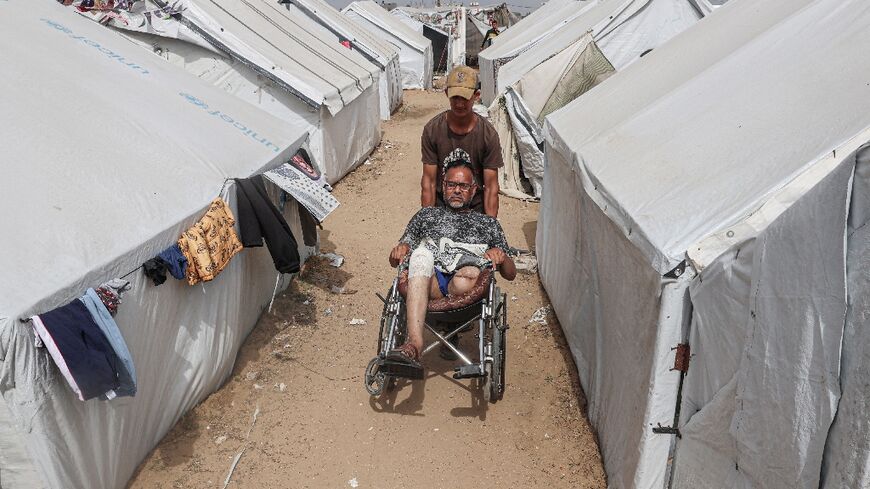Palestinians mourned people killed in Israeli bombardment of Rafah, the crowded southern Gaza city where Israel says it is advancing plans for a ground invasion.
Global concern has mounted over the looming operation against Hamas militants in Rafah, where much of Gaza's population has sought refuge from more than six months of war.
Aid groups warn any invasion would add to already-catastrophic conditions for Gaza's 2.4 million people.
Israeli officials have vowed to enter Rafah, near the Egyptian border, but even before any ground operation the area has been regularly bombed.
Rafah resident Abu Abdallah said "a very powerful strike" hit a house where displaced Gazans were sheltering.
"This is not a life," he told AFP. "We can no longer live in our home, our neighbourhood, or walk anywhere. The war has been going on for too long."
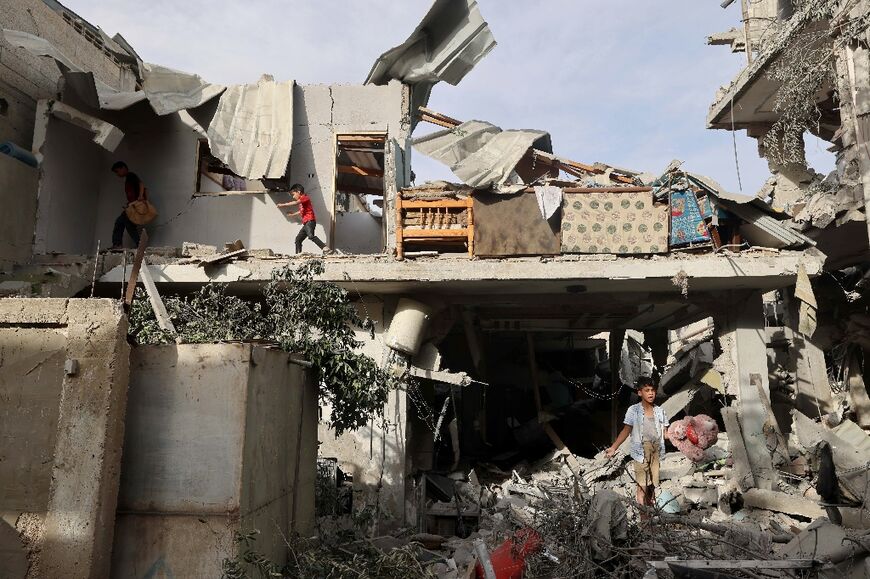
At the city's Al-Najjar Hospital on Thursday, among the mourners were two men crouching, grief-stricken, in front of a white body bag.
Belgium said an Israeli strike on Rafah killed Abdallah Nabhan, 33, who worked for its Enabel development agency.
Israeli government spokesman David Mencer said Israel's war cabinet was meeting Thursday "to discuss how to destroy the last battalions of Hamas".
Several Israeli media outlets, citing unnamed officials, said the cabinet discussed a new plan for a truce and hostage release, ahead of a visit planned for Friday by an Egyptian delegation.
Qatar, Egypt and the United States have mediated truce and hostage-release talks, so far without success since a one-week halt to the fighting in November.
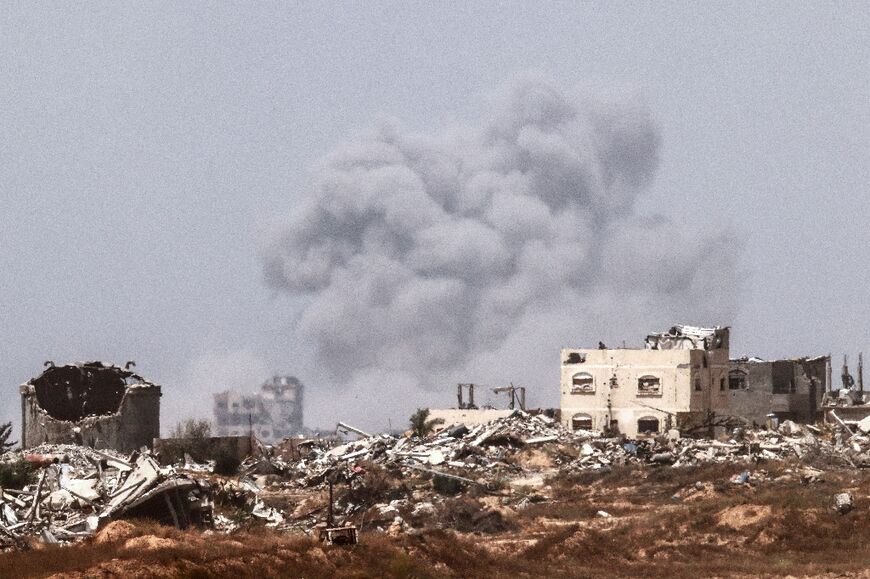
The war began with an unprecedented Hamas attack on October 7 that resulted in the deaths of about 1,170 people in Israel, according to an AFP tally of Israeli official figures.
Israel vowed to destroy Hamas, with a retaliatory offensive that has killed at least 34,305 people in Gaza, mostly women and children, according to the Hamas-run territory's health ministry.
- Regional fallout -
As protests in solidarity with Palestinians spread on US campuses, President Joe Biden signed a law authorising $13 billion in additional military assistance for close ally Israel and $1 billion in humanitarian aid for Gaza.
The Pentagon said Thursday that the US military had begun construction of a "temporary pier" off the besieged Gaza Strip's coast to boost shipments of desperately needed aid.
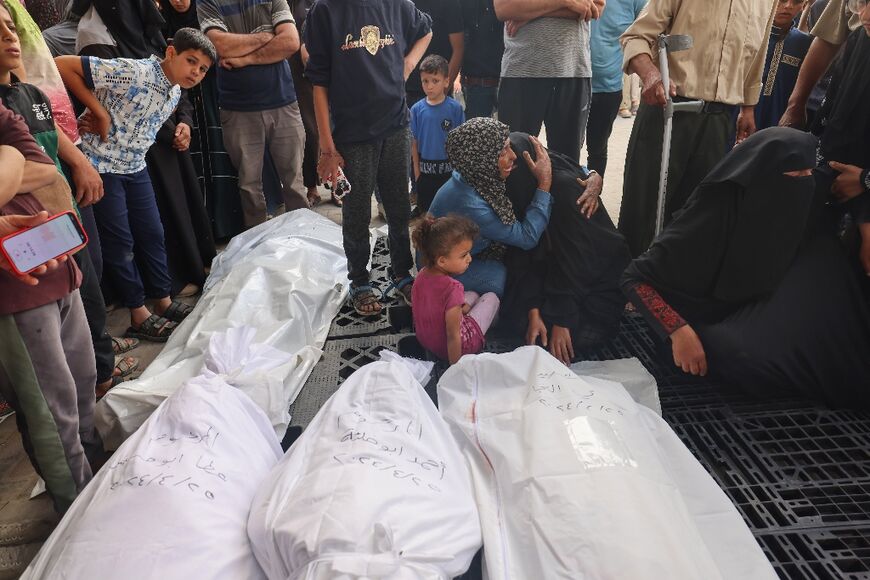
Plans were first announced by Biden in early March as Israel had been accused of holding up deliveries of assistance by ground.
UN and humanitarian officials have repeatedly stressed that sea or air deliveries are far less efficient than increasing the volume of aid allowed into Gaza on land routes from Israel and Egypt.
The Gaza war has led to violence between Israel and Iran's proxies and allies, driving up regional tensions.
Israel has struck increasingly deeper into Lebanon, while the Iran-backed Hezbollah movement has stepped up attacks on Israeli military bases across the border.
On Friday, the Israeli army reported that two anti-tank missile strikes had hit northern Israel from Lebanon overnight, adding that it had responded with artillery fire.
Fighter jets struck Hezbollah "infrastructure" near Kfarchouba village in southern Lebanon, the Israeli army said in a statement.
Hezbollah claimed in a statement to have "directly hit" Israeli forces on the border with artillery.
Hezbollah had on Thursday denied a comment by Israeli Defence Minister Yoav Gallant that "half of Hezbollah's commanders in southern Lebanon have been eliminated" in the months of violence.
In other regional fallout, US-led coalition forces shot down an anti-ship missile launched by Yemen's Iran-backed Huthi rebels, American authorities said on Thursday.
Britain's defence ministry said the Royal Navy shot down a missile fired at a merchant vessel in the Gulf of Aden.
- 'Deal on the table' -
In Gaza, witnesses reported clashes between militants and Israeli troops near the central Nuseirat refugee camp.
Citing Egyptian officials briefed on Israeli plans on Rafah, the Wall Street Journal has said Israel was planning to move civilians to nearby Khan Yunis over a period of two to three weeks, before gradually sending troops.
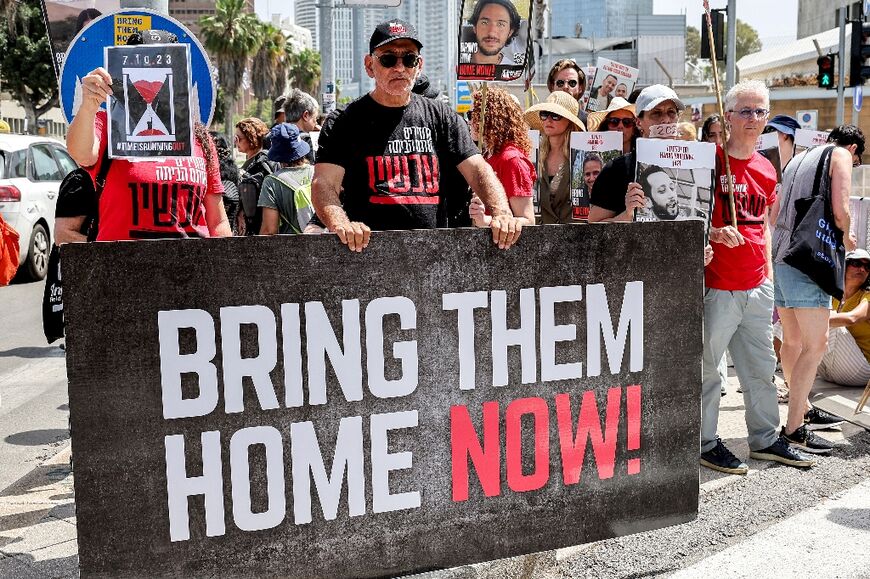
Senior Hamas official Ghazi Hamad told AFP that Israel "will not achieve what it wants" in Rafah, warning that an invasion "will undoubtedly threaten the negotiations" and show "that Israel is interested in continuing the war".
Since the war started, between 80,000 and 100,000 Palestinians from Gaza have crossed into Egypt, the Palestinian ambassador to Cairo, Diab Allouh, told AFP.
On Thursday the leaders of the United States, Britain, France and more than a dozen other countries expressed support for "the deal on the table" and called for Hamas to release the remaining captives.
During their attack, militants seized hostages, 129 of whom Israel estimates remain in Gaza, including 34 whom the military says are dead.
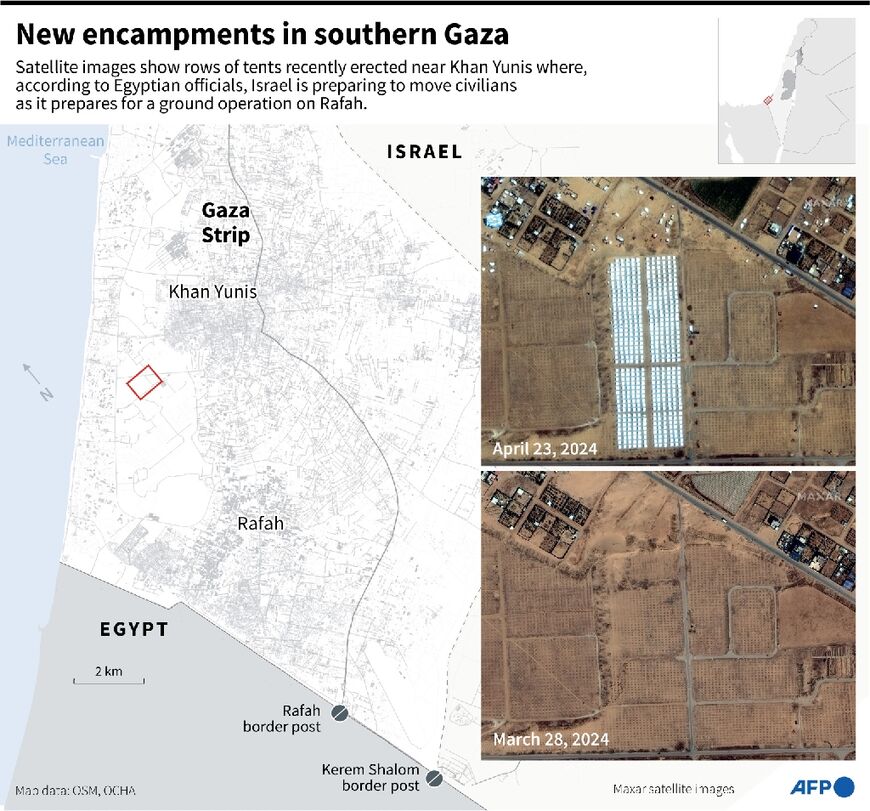
Hamas on Wednesday released a video of an Israeli-American man who identified himself as Hersh Goldberg-Polin, 23, and was among those captured on October 7.
Israeli demonstrators have intensified protests, including on Thursday in Tel Aviv, for the government to reach a deal that would free the captives, accusing Prime Minister Benjamin Netanyahu of prolonging the war.
Iris Weinstein-Haggai, whose parents both died in captivity in Gaza, said: "We have to do everything to help the deceased come home to a respectful burial, and the ones who are alive to... reunite with their families."
- Hundreds buried at hospital -
Israel has repeatedly targeted hospitals during the war, accusing Hamas of using them as command centres and to hold hostages. Hamas denies the accusations.
On Thursday, Yamen Abu Suleiman, head of Gaza's Civil Defence agency in Khan Yunis, raised to 392 the number of bodies he said had been recovered from three mass graves at the city's Nasser Medical Complex.
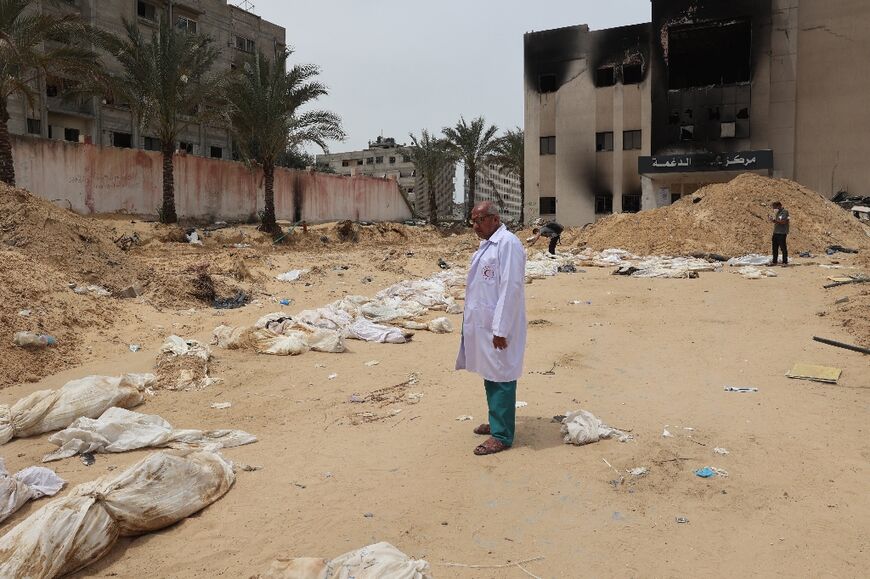
Families had identified 165 of them, he said, reiterating accusations that some are suspected of being killed and buried by Israeli forces.
The Israeli army has acknowledged that "corpses buried by Palestinians" had been examined by soldiers searching for hostages, but did not directly address allegations that Israeli troops were behind the killings.
Some Gazan parents told AFP the bodies recovered had been buried by relatives.
The White House, European Union and the UN rights office have called for transparent and independent probes into the reported body discoveries.
burs/tym/ser
